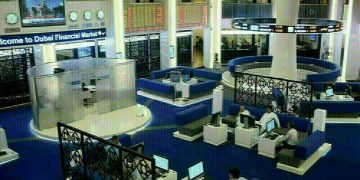© Reuters. FILE PHOTO: The City of London financial district can be seen as people walk along the south side of the River Thames, amid the coronavirus disease (COVID-19) outbreak in London, Britain, March 19, 2021. REUTERS/Henry Nicholls
SPGI
+0.25%
Add to/Remove from Watchlist
Add to Watchlist
Add Position
Position added successfully to:
Please name your holdings portfolio
Type:
BUY
SELL
Date:
Amount:
Price
Point Value:
Leverage:
1:1
1:10
1:25
1:50
1:100
1:200
1:400
1:500
1:1000
Commission:
Create New Watchlist
Create
Create a new holdings portfolio
Add
Create
+ Add another position
Close
By Suban Abdulla and William Schomberg
LONDON (Reuters) -British businesses reported their busiest month in a year and consumers turned more confident, according to surveys published on Friday that added to signs of a recovery in the economy that has so far defied forecasts of a recession.
The preliminary reading of the S&P Global/CIPS UK Composite Purchasing Mangers’ Index (PMI) also showed the slowest input cost inflation in over two years, but price pressures look strong enough for the Bank of England to raise rates again next month.
The PMI – spanning services and manufacturing firms – rose to 53.9 in April from 52.2 in March, putting it further above the 50 line denoting growth for the third consecutive month and representing the strongest growth since April last year.
Economists polled by Reuters had forecast a lower reading of 52.5.
“The key takeaway is that the economy as a whole is not only showing encouraging resilience but has gained growth momentum heading into the second quarter,” Chris Williamson, chief business economist at S&P Global (NYSE:SPGI), said.
The PMI was driven by the services sector as consumer spending on travel, leisure and entertainment showed strength while manufacturing remained weak.
Williamson said the survey was consistent with quarterly gross domestic product growth of 0.4%.
Last month the BoE said it expected modest economic growth in the second quarter of 2023, though it still predicted a contraction in the first quarter.
It is widely expected to increase borrowing costs for the 12th meeting in a row in May as it continues to grapple with an inflation rate above 10%.
The International Monetary Fund this month predicted that Britain’s economy would shrink by 0.3% in 2023, a less severe hit than its previous forecast but still the sharpest contraction among the world’s big rich economies this year.
S&P Global’s input price index – a good guide to future inflation pressures – showed the slowest growth in costs for firms since March 2021, although overall cost pressures remained high by historical standards.
There were also signs of recovery in Friday’s consumer confidence survey by polling firm GfK which rose to its highest since February last year, albeit to weak levels.
Consumers’ expectations for Britain’s economy in the next 12 months hit a 15-month high and they rated the prospects for their finances as the best since February 2022.
“The brighter views on what the general economy has in store for us … could even be seen as the proverbial ‘green shoots of recovery’,” Joe Staton, GfK’s client strategy director, said.
There was a reminder of the problems facing many consumers in official retail sales data also published on Friday.
Sales volumes fell by a greater-than-expected 0.9% in March from February, but some of the weakness was attributed to rainy weather as well as the impact of high inflation.
Darren Morgan, director of economics at the Office for National Statistics, said the broader trend for retail sales was less subdued than the figures for March alone suggested.
“A strong performance from retailers in January and February means the three-month picture shows positive growth for the first time since August 2021,” he said.
Source: Investing.com


























